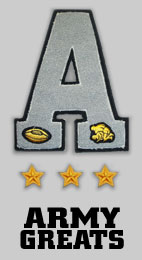
Home
Classes
Coaches
Army Greats
Army Lore
Teams
Of Interest...
About
Submissions
Contact
Newsletter
Credits
Click on small photos
 Cadet will not Lie, Cheat, Steal, or Tolerate Those Who Do Cadet will not Lie, Cheat, Steal, or Tolerate Those Who Do
 USMA at West Point USMA at West Point
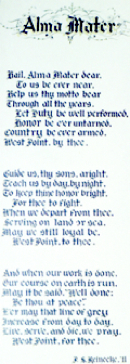 We have changed the wording of our Alma Mater to reflect the fact that our Women Graduates have also given their lives serving this Nation.
We have changed the wording of our Alma Mater to reflect the fact that our Women Graduates have also given their lives serving this Nation.
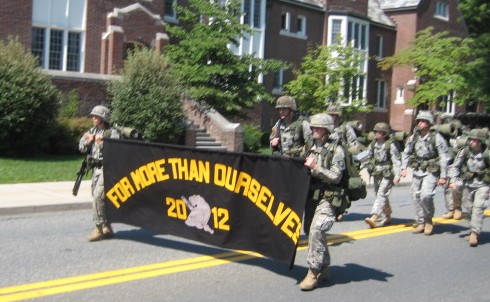 ----- Class of 2012 Motto ------ - "For More Than Ourselves" -Thank you Class of 2012 - for the Honor of Marching with you
The Class of 62 - Can Do ----- Class of 2012 Motto ------ - "For More Than Ourselves" -Thank you Class of 2012 - for the Honor of Marching with you
The Class of 62 - Can Do
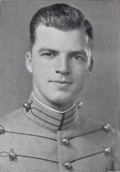 Remember - The Soldiers you will lead Always Come First Remember - The Soldiers you will lead Always Come First
 Motto -- Duty Honor Country Motto -- Duty Honor Country
 The Cadets of West Point
The Cadets of West Point
 They played perhaps Army's Greatest Game. They were the Team that Gave The Most They played perhaps Army's Greatest Game. They were the Team that Gave The Most
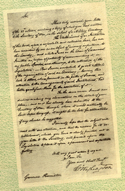 Washington's Letter recommending the establishment of the Academy and the History of West Point
Washington's Letter recommending the establishment of the Academy and the History of West Point
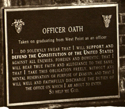
The Oaths We Take
 West Points Medal of Honor Winners West Points Medal of Honor Winners
 Jefferson Hall - the Academy's new Library.
Jefferson Hall - the Academy's new Library.
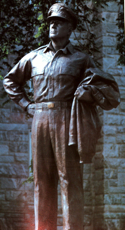 Douglas MacArthur
Douglas MacArthur
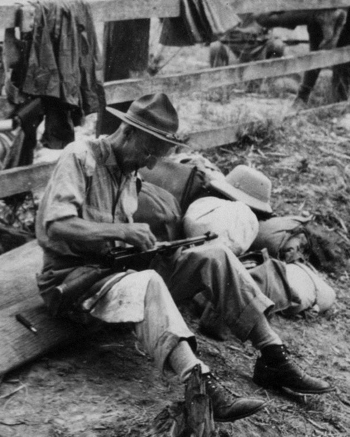
Vinegar Joe Stilwell cleaning his Thompson -The Walkout -Burma 1942
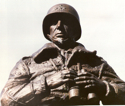 George Patton
George Patton
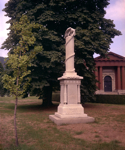 The Monuments of West Point
The Monuments of West Point
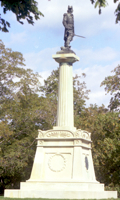 Kosciuszko Monument - Guarding the Hudson ensuring there is no passage of British Man of War
Kosciuszko Monument - Guarding the Hudson ensuring there is no passage of British Man of War
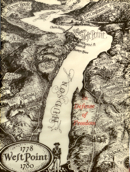 Forts of the Hudson
Forts of the Hudson
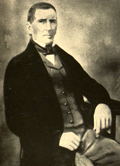
So we'll sing our reminiscences of Benny Havens, Oh!
 Academic Excellence Academic Excellence
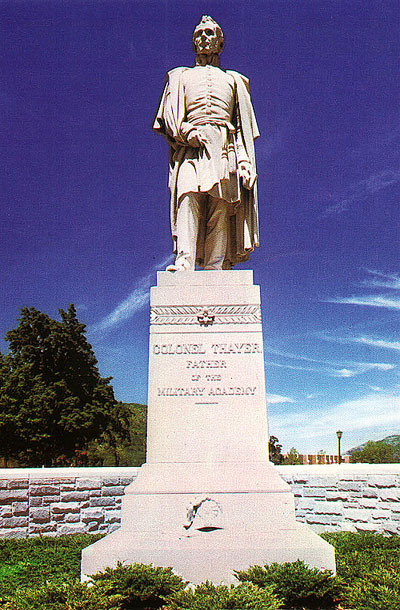 ---- Colonel Thayer ---- Colonel Thayer
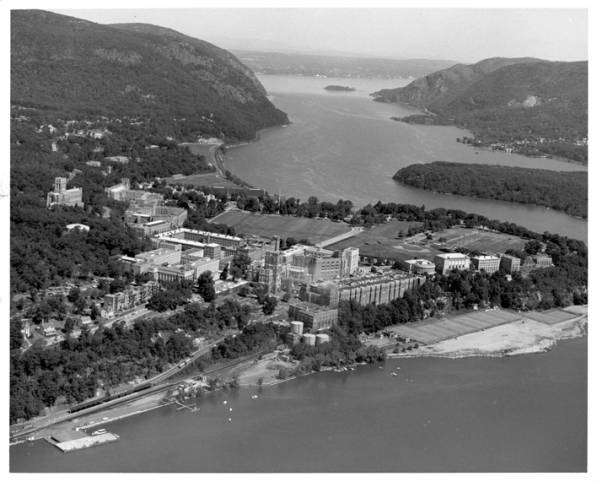 West Point West Point
 Trophy Point Trophy Point
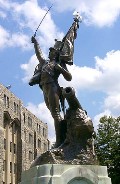 L'Ecole Polytechnique Monument, or The French Monument by Cadets L'Ecole Polytechnique Monument, or The French Monument by Cadets
 Superintendent's Quarters viewed from Thayer Road Superintendent's Quarters viewed from Thayer Road
 Superintendant was not Happy
Black '57
Superintendant was not Happy
Black '57
 Home of the Dean Home of the Dean
 Quarters 104 Quarters 104
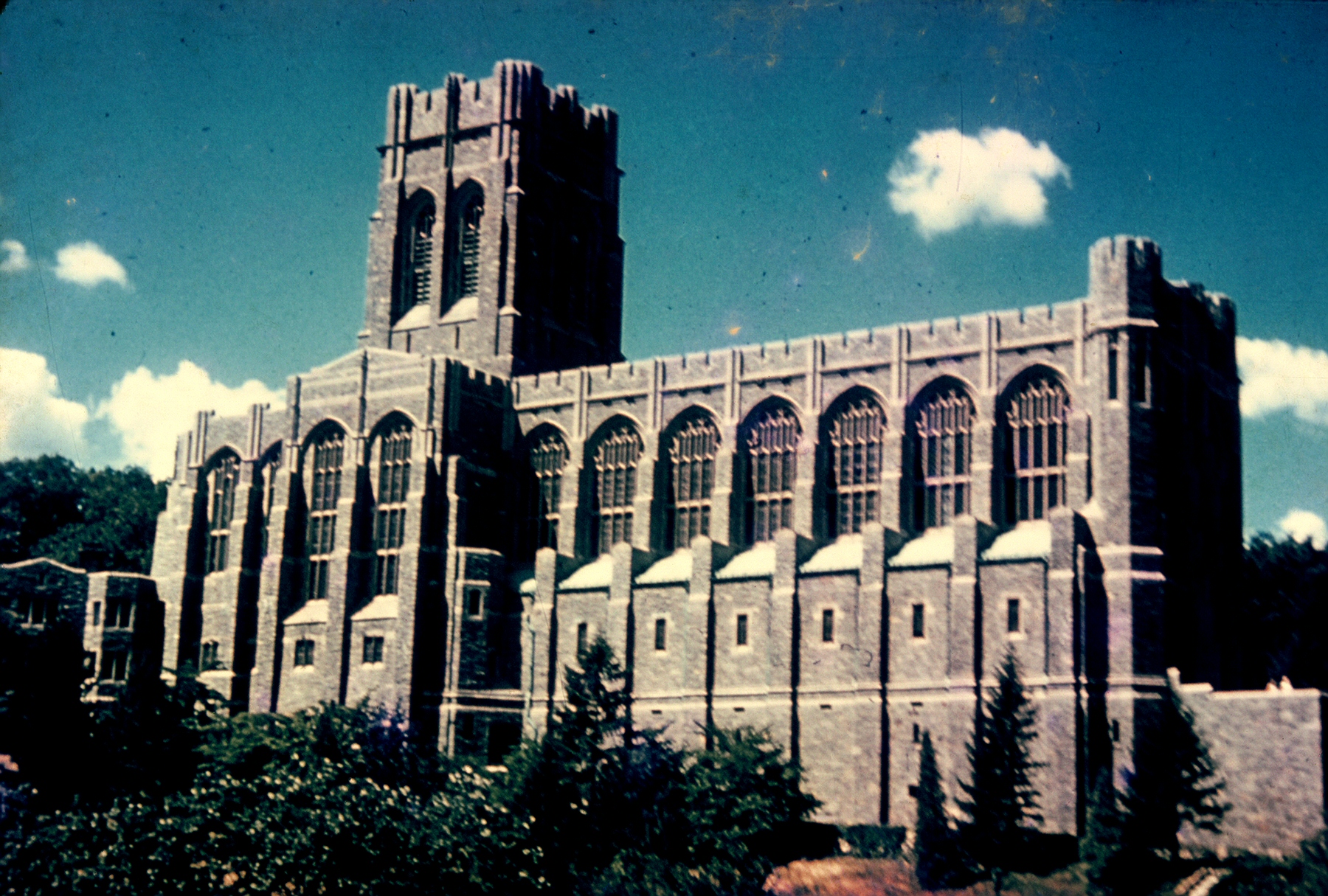 Cadet Chapel Cadet Chapel
 Michie Stadium Michie Stadium
 Arvin Gym Arvin Gym
 Kimsey Athletic Center Kimsey Athletic Center
 Holleder Center Holleder Center
 Washington Monument Washington Monument
 United States Military Academy Band United States Military Academy Band
 Cadet Barracks Cadet Barracks
 Rugby Complex Rugby Complex
 Great Chain Great Chain
 Plain looking toward Washington Hall Plain looking toward Washington Hall
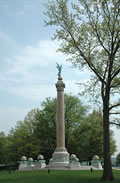 Battle Monument Battle Monument
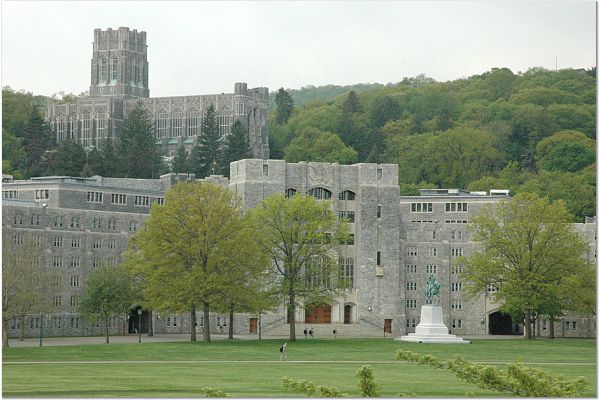 Washington Hall with Cadet Chapel on rocks above. Washington Hall with Cadet Chapel on rocks above.
 Hudson River Hudson River
 Captured Trophies Captured Trophies
 Battle Monument Battle Monument
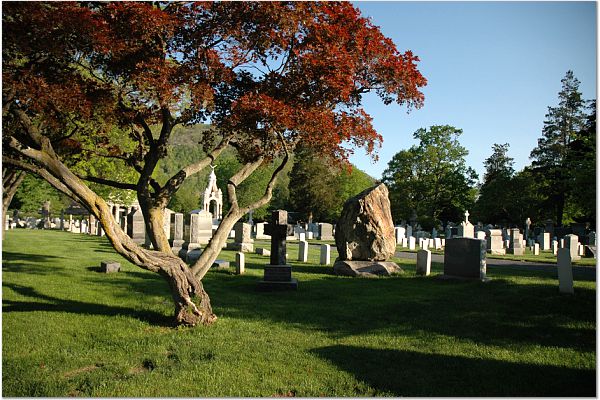 West Point Cemetery West Point Cemetery
 Plain Plain
 Cost to this Nation of Differing Views Cost to this Nation of Differing Views
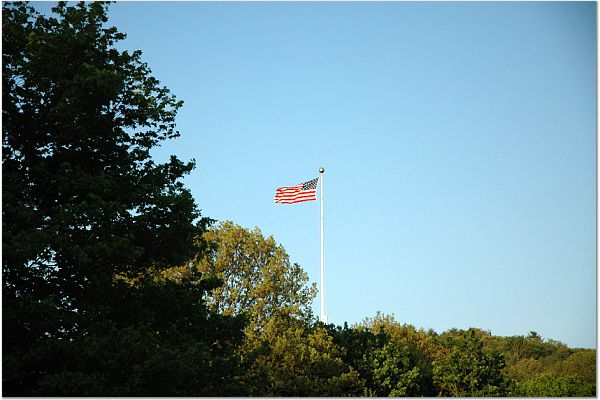 Trophy Point -- Our Flag Trophy Point -- Our Flag
 Corps of Cadets Formed in Companies early 1960s Corps of Cadets Formed in Companies early 1960s
 Corps of Cadets Formed in Companies early 1960s Corps of Cadets Formed in Companies early 1960s
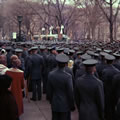 Sending the Army Team off to Beat Navy Sending the Army Team off to Beat Navy
 Army Mule Army Mule
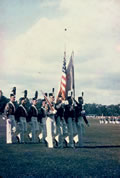 Color Guard Color Guard
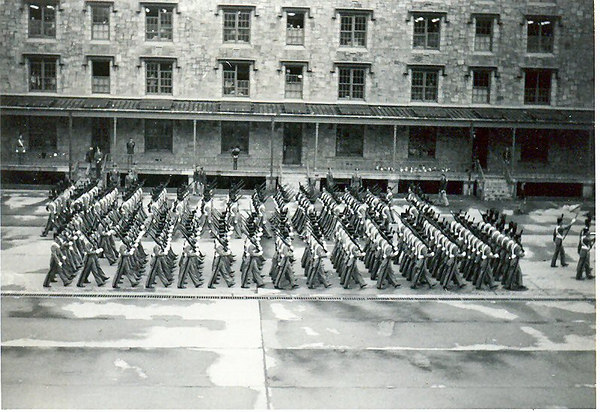
Band Box Review Early 1950's in Central Area
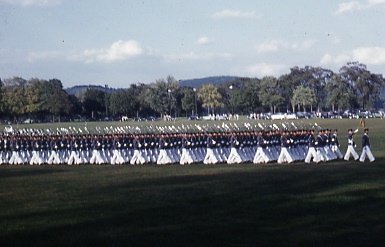 Battalion Mass Early 50's Battalion Mass Early 50's
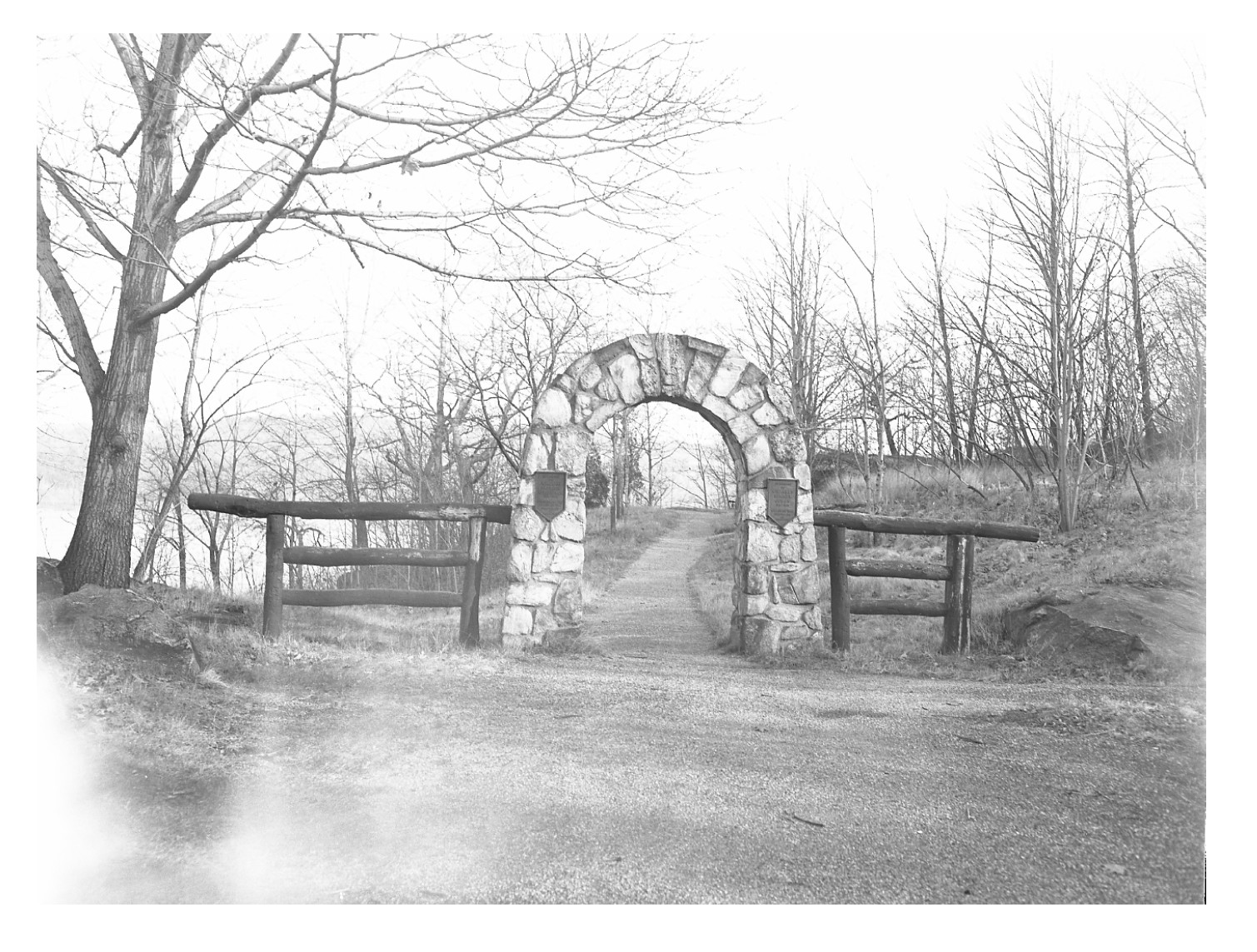 Flirtation Walk Flirtation Walk
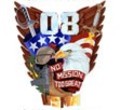
 Arvin Gym Arvin Gym
Duty Honor Country
 Cadet will not Lie, Cheat, Steal, or Tolerate Those Who Do Cadet will not Lie, Cheat, Steal, or Tolerate Those Who Do
 Motto -- Duty Honor Country Motto -- Duty Honor Country
 Remember - The Soldiers you will lead Always Come First Remember - The Soldiers you will lead Always Come First

 Academic Excellence Academic Excellence
 --They played perhaps Army's Greatest Game. They were the Team that Gave The Most --They played perhaps Army's Greatest Game. They were the Team that Gave The Most
 Colonel Thayer Colonel Thayer
 West Point mid 60's West Point mid 60's
 Trophy Point Trophy Point
 L'Ecole Polytechnique Monument, or The French Monument by Cadets L'Ecole Polytechnique Monument, or The French Monument by Cadets
 Superintendent's Quarters viewed from Thayer Road Superintendent's Quarters viewed from Thayer Road
 Cadet Chapel Cadet Chapel
 Michie Stadium Michie Stadium
 Arvin Gym Arvin Gym
 Kimsey Athletic Center Kimsey Athletic Center
 Holleder Center Holleder Center
 Washington Monument Washington Monument
 United States Military Academy Band United States Military Academy Band
 Barracks Barracks
 Rugby Complex Rugby Complex
 Great Chain Great Chain
 Plain looking toward Washington Hall Plain looking toward Washington Hall
 Battle Monument Battle Monument
 Washington Hall with Cadet Chapel on rocks above. Washington Hall with Cadet Chapel on rocks above.
 Hudson River Hudson River
 Captured Trophies Captured Trophies
 Battle Monument Battle Monument
 West Point Cemetery West Point Cemetery
 Plain Plain
 Cost to this Nation of Differing Views Cost to this Nation of Differing Views
 Trophy Point -- Our Flag Trophy Point -- Our Flag
 Corps of Cadets Formed in Companies early 1960s Corps of Cadets Formed in Companies early 1960s
 Corps of Cadets Formed in Companies early 1960s Corps of Cadets Formed in Companies early 1960s
 Sending the Army Team off to Beat Navy Sending the Army Team off to Beat Navy
 Army Mule Army Mule
 Color Guard Color Guard

Band Box Review Early 1950's in Central Area
 Battalion Mass Early 50's Battalion Mass Early 50's
 Flirtation Walk Flirtation Walk
 Cadet will not Lie, Cheat, Steal, or Tolerate Those Who Do Cadet will not Lie, Cheat, Steal, or Tolerate Those Who Do
 Motto -- Duty Honor Country Motto -- Duty Honor Country
 Remember - The Soldiers you will lead Always Come First Remember - The Soldiers you will lead Always Come First
 Academic Excellence Academic Excellence
 They played perhaps Army's Greatest Game. They were the Team that Gave The Most They played perhaps Army's Greatest Game. They were the Team that Gave The Most
 Colonel Thayer Colonel Thayer
 West Point mid 60's West Point mid 60's
 Trophy Point Trophy Point
 L'Ecole Polytechnique Monument, or The French Monument by Cadets L'Ecole Polytechnique Monument, or The French Monument by Cadets
 Superintendent's Quarters viewed from Thayer Road Superintendent's Quarters viewed from Thayer Road
 Cadet Chapel Cadet Chapel
 Michie Stadium Michie Stadium
 Arvin Gym Arvin Gym
 Kimsey Athletic Center Kimsey Athletic Center
 Holleder Center Holleder Center
 Washington Monument Washington Monument
 United States Military Academy Band United States Military Academy Band
 Barracks Barracks
 Rugby Complex Rugby Complex
 Great Chain Great Chain
 Plain looking toward Washington Hall Plain looking toward Washington Hall
 Battle Monument Battle Monument
 Washington Hall with Cadet Chapel on rocks above. Washington Hall with Cadet Chapel on rocks above.
 Hudson River Hudson River
 Captured Trophies Captured Trophies
 Battle Monument Battle Monument
 West Point Cemetery West Point Cemetery
 Plain Plain
 - Cost to this Nation of Differing Views - Cost to this Nation of Differing Views
 Trophy Point -- Our Flag Trophy Point -- Our Flag
 Corps of Cadets Formed in Companies early 1960s Corps of Cadets Formed in Companies early 1960s
 Corps of Cadets Formed in Companies early 1960s Corps of Cadets Formed in Companies early 1960s
 Sending the Army Team off to Beat Navy Sending the Army Team off to Beat Navy
 - Army Mule - Army Mule
 Color Guard Color Guard

Band Box Review Early 1950's in Central Area
 Battalion Mass Early 50's Battalion Mass Early 50's
 Flirtation Walk Flirtation Walk
Click on Photos Below
Please note it takes a couple of hours to update all pages as material is added to this section. You may have to return to the home page to see all of the current links
 Cadet will not Lie, Cheat, Steal, or Tolerate Those Who Do Cadet will not Lie, Cheat, Steal, or Tolerate Those Who Do
 We have changed the wording of our Alma Mater to reflect the fact that our Women Graduates have also given their lives serving this Nation.
We have changed the wording of our Alma Mater to reflect the fact that our Women Graduates have also given their lives serving this Nation.
 ----- Class of 2012 Motto ----- "For More Than Ourselves" Thank you Class of 2012 for the Honor of Marching with you
The Class of 62 ----- Class of 2012 Motto ----- "For More Than Ourselves" Thank you Class of 2012 for the Honor of Marching with you
The Class of 62
 ---------- Class of 2008 --------- ----- Class Crest & Motto ----- "No Mission Too Great" ---------- Class of 2008 --------- ----- Class Crest & Motto ----- "No Mission Too Great"
---- Their Commencement ---- "Here am I; Send me." Thank you Class of 2008 and Please Thank the Men & Women --- the Soldiers you will lead ---
The Class of 62.
 Motto -- Duty Honor Country Motto -- Duty Honor Country
 Remember - The Soldiers you will lead Always Come First Remember - The Soldiers you will lead Always Come First
 Jefferson Hall - the Academy's new Library.
Jefferson Hall - the Academy's new Library.
 Academic Excellence Academic Excellence
 --They played perhaps Army's Greatest Game. They were the Team that Gave The Most --They played perhaps Army's Greatest Game. They were the Team that Gave The Most
 ---- Colonel Thayer ---- Colonel Thayer
 West Point mid 60's West Point mid 60's
 Trophy Point Trophy Point
 L'Ecole Polytechnique Monument, or The French Monument by Cadets L'Ecole Polytechnique Monument, or The French Monument by Cadets
 Superintendent's Quarters viewed from Thayer Road Superintendent's Quarters viewed from Thayer Road
 Cadet Chapel Cadet Chapel
 Michie Stadium Michie Stadium
 Arvin Gym Arvin Gym
 Kimsey Athletic Center Kimsey Athletic Center
 Holleder Center Holleder Center
 Washington Monument Washington Monument
 United States Military Academy Band United States Military Academy Band
 Barracks Barracks
 Rugby Complex Rugby Complex
 Great Chain Great Chain
 Plain looking toward Washington Hall Plain looking toward Washington Hall
 Battle Monument Battle Monument
 Washington Hall with Cadet Chapel on rocks above. Washington Hall with Cadet Chapel on rocks above.
 Hudson River Hudson River
 Captured Trophies Captured Trophies
 Battle Monument Battle Monument
 West Point Cemetery West Point Cemetery
 Plain Plain
 - Cost to this Nation of Differing Views - Cost to this Nation of Differing Views
 Trophy Point -- Our Flag Trophy Point -- Our Flag
 Corps of Cadets Formed in Companies early 1960s Corps of Cadets Formed in Companies early 1960s
 Corps of Cadets Formed in Companies early 1960s Corps of Cadets Formed in Companies early 1960s
 Sending the Army Team off to Beat Navy Sending the Army Team off to Beat Navy
 - Army Mule - Army Mule
 Color Guard Color Guard

Band Box Review Early 1950's in Central Area
 Battalion Mass Early 50's Battalion Mass Early 50's
 Flirtation Walk Flirtation Walk

 Arvin Gym Arvin Gym
Duty Honor Country
 Cadet will not Lie, Cheat, Steal, or Tolerate Those Who Do Cadet will not Lie, Cheat, Steal, or Tolerate Those Who Do
 Motto -- Duty Honor Country Motto -- Duty Honor Country
 Remember - The Soldiers you will lead Always Come First Remember - The Soldiers you will lead Always Come First

 Academic Excellence Academic Excellence
 --They played perhaps Army's Greatest Game. They were the Team that Gave The Most --They played perhaps Army's Greatest Game. They were the Team that Gave The Most
 ---- Colonel Thayer ---- Colonel Thayer
 West Point mid 60's West Point mid 60's
 Trophy Point Trophy Point
 L'Ecole Polytechnique Monument, or The French Monument by Cadets L'Ecole Polytechnique Monument, or The French Monument by Cadets
 Superintendent's Quarters viewed from Thayer Road Superintendent's Quarters viewed from Thayer Road
 Cadet Chapel Cadet Chapel
 Michie Stadium Michie Stadium
 Arvin Gym Arvin Gym
 Kimsey Athletic Center Kimsey Athletic Center
 Holleder Center Holleder Center
 Washington Monument Washington Monument
 United States Military Academy Band United States Military Academy Band
 Barracks Barracks
 Rugby Complex Rugby Complex
 Great Chain Great Chain
 Plain looking toward Washington Hall Plain looking toward Washington Hall
 Battle Monument Battle Monument
 Washington Hall with Cadet Chapel on rocks above. Washington Hall with Cadet Chapel on rocks above.
 Hudson River Hudson River
 Captured Trophies Captured Trophies
 Battle Monument Battle Monument
 West Point Cemetery West Point Cemetery
 Plain Plain
 - Cost to this Nation of Differing Views - Cost to this Nation of Differing Views
 Trophy Point -- Our Flag Trophy Point -- Our Flag
 Corps of Cadets Formed in Companies early 1960s Corps of Cadets Formed in Companies early 1960s
 Corps of Cadets Formed in Companies early 1960s Corps of Cadets Formed in Companies early 1960s
 Sending the Army Team off to Beat Navy Sending the Army Team off to Beat Navy
 - Army Mule - Army Mule
 Color Guard Color Guard

Band Box Review Early 1950's in Central Area
 Battalion Mass Early 50's Battalion Mass Early 50's
 Flirtation Walk Flirtation Walk
 Cadet will not Lie, Cheat, Steal, or Tolerate Those Who Do Cadet will not Lie, Cheat, Steal, or Tolerate Those Who Do
 Motto -- Duty Honor Country Motto -- Duty Honor Country
 Remember - The Soldiers you will lead Always Come First Remember - The Soldiers you will lead Always Come First
 Academic Excellence Academic Excellence
 --They played perhaps Army's Greatest Game. They were the Team that Gave The Most --They played perhaps Army's Greatest Game. They were the Team that Gave The Most
 ---- Colonel Thayer ---- Colonel Thayer
 West Point mid 60's West Point mid 60's
 Trophy Point Trophy Point
 L'Ecole Polytechnique Monument, or The French Monument by Cadets L'Ecole Polytechnique Monument, or The French Monument by Cadets
 Superintendent's Quarters viewed from Thayer Road Superintendent's Quarters viewed from Thayer Road
 Cadet Chapel Cadet Chapel
 Michie Stadium Michie Stadium
 Arvin Gym Arvin Gym
 Kimsey Athletic Center Kimsey Athletic Center
 Holleder Center Holleder Center
 Washington Monument Washington Monument
The material below this point is a site a work area.


Page 2
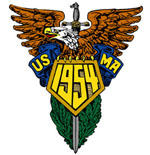 The '54 Crest
The '54 Crest
 General MacArthur stated it would take
General MacArthur stated it would take "at least 10 years" to return Army Football to Respectability
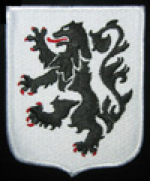 28th Infantry Regiment Black Lion Award is intended to go to the person on his team "who best exemplifies the character of Don Holleder: leadership, courage, devotion to duty, self-sacrifice, and - above all -
28th Infantry Regiment Black Lion Award is intended to go to the person on his team "who best exemplifies the character of Don Holleder: leadership, courage, devotion to duty, self-sacrifice, and - above all - an unselfish concern for the team ahead of himself."
 General George Patton
General George Patton "The Army moves as a team, eats as a team, and fights as a team."
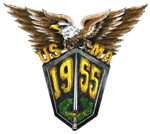 The '55 Crest
The '55 Crest
 They played perhaps Army's Greatest Game. They played perhaps Army's Greatest Game.They were the Team that Gave The Most
 Don Hollender Remember - The Soldiers you will lead Always Come First
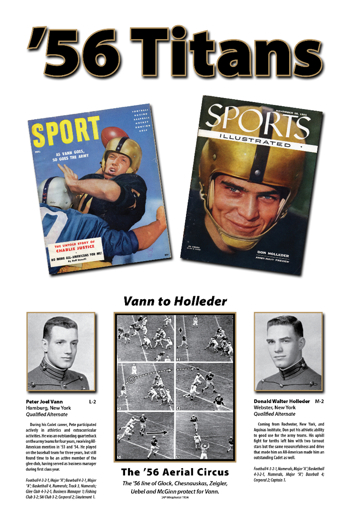 Vann and Holleder Vann and Holleder
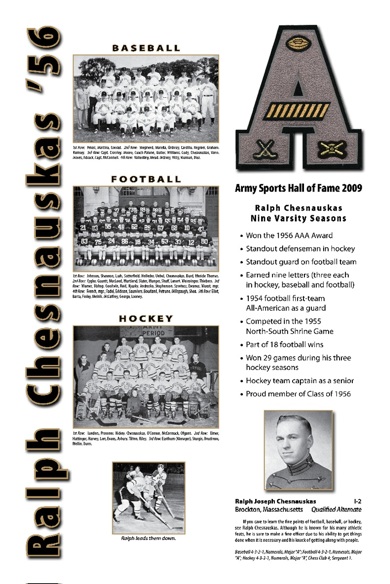 9 Army A's 9 Army A's
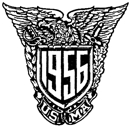 The '56 Crest
The '56 Crest
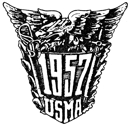 The '57 Crest
The '57 Crest
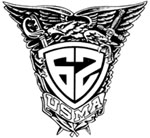 Can Do
Can Do
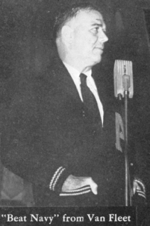 Gen Van Fleet addressing the Corps prior to the Navy Game
Gen Van Fleet addressing the Corps prior to the Navy Game
 Constructed under supervision of Jay Gould "54 and the Ord Dept from a German Rocket Gun captured at Kasserine Pass. First used in the Duke Game.
Constructed under supervision of Jay Gould "54 and the Ord Dept from a German Rocket Gun captured at Kasserine Pass. First used in the Duke Game.
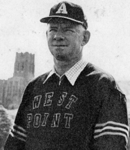 COL "Red" Reeder granted the Cheerleaders Corps Squad status to obtain financial support for their spirit-inducing initiatives.
COL "Red" Reeder granted the Cheerleaders Corps Squad status to obtain financial support for their spirit-inducing initiatives.
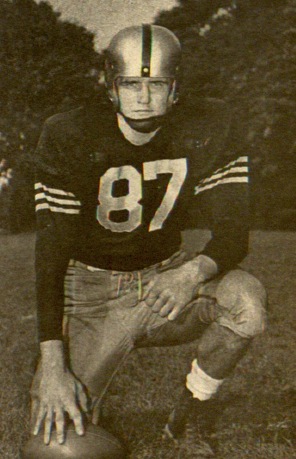 Bob Mischak - - It should be pointed out that Bob was an All American selection, but is not recognized by the Academy as such because of the organization which selected him. Bob Mischak - - It should be pointed out that Bob was an All American selection, but is not recognized by the Academy as such because of the organization which selected him.
 Ubel scores 3 Times against Navy - Vann's facking results in Peter getting tackled - #10 on the ground behind Ubel
Ubel scores 3 Times against Navy - Vann's facking results in Peter getting tackled - #10 on the ground behind Ubel
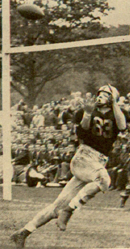 Vann to Sisson
Vann to Sisson
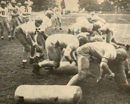 Army's B Squad
Army's B Squad
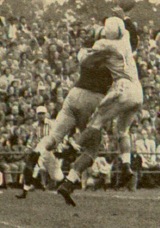 Vann to Mischak. Vann to Mischak.
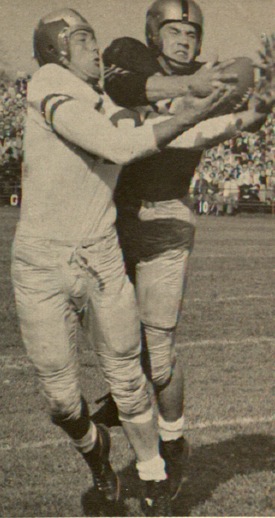 Uebel Intercepts Uebel Intercepts
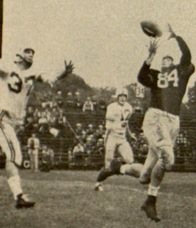 Cody to Don Holleder Cody to Don Holleder
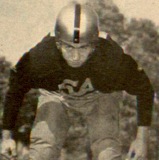 Lasley Lasley
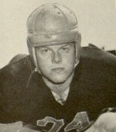 Frank Hicks Frank Hicks
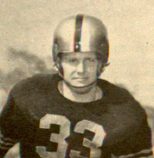 Burd Burd
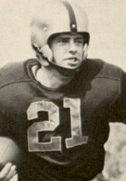 Bill Purdue Bill Purdue
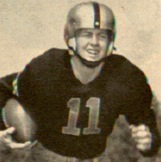 Cody Cody
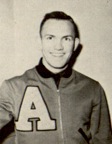 Meador Mgr Meador Mgr
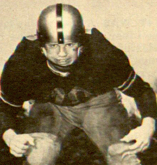 Ron Melnick Ron Melnick
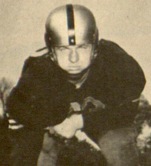 Ralph Chesnauskas Ralph Chesnauskas
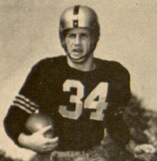 Pat Uebel Pat Uebel
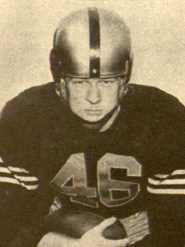 Tommy Bell Tommy Bell
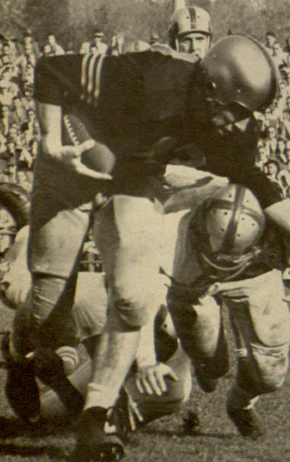 Sisson headed for another score Sisson headed for another score
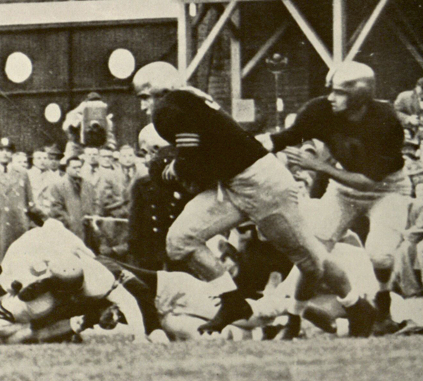 Peter Vann stuffs the ball in Jerry's gut Peter Vann stuffs the ball in Jerry's gut
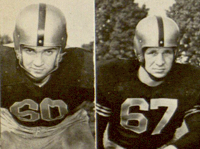 Leroy Lunn & Jerry Lodge Leroy Lunn & Jerry Lodge
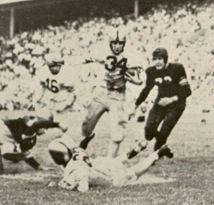 Uebel after taking the handoff from Hagan
Uebel after taking the handoff from Hagan
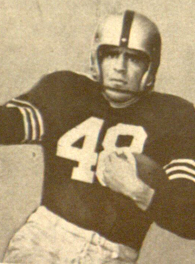 Attaya - Army's Fullback
Attaya - Army's Fullback
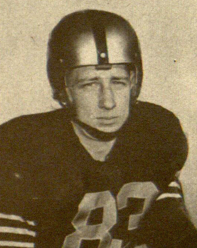 Sisson - one of 3 Great Ends
Sisson - one of 3 Great Ends
 Bob Mischak Bob Mischak
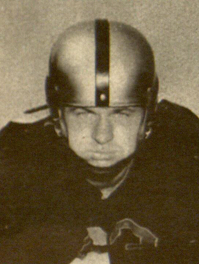 Unknown Unknown
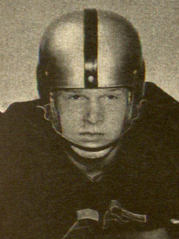 Unknown Unknown
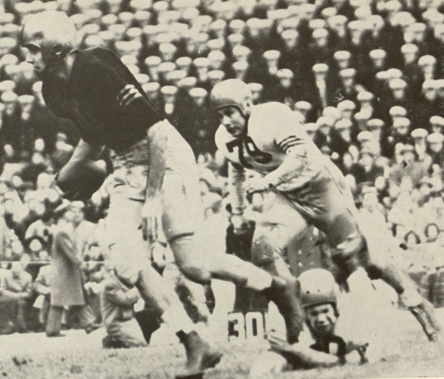 Vann moving out of the pocket
Vann moving out of the pocket
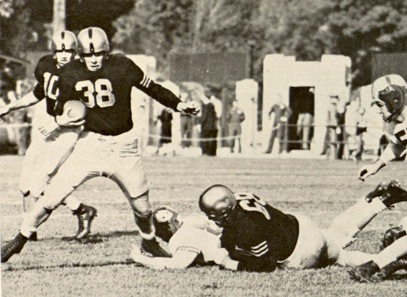 Peter Vann 10, Billy Chance 38, Herdman 68
Peter Vann 10, Billy Chance 38, Herdman 68
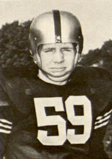 Ken Kramer Ken Kramer
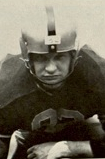 Joe Lapchick Joe Lapchick
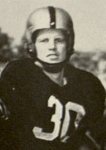 Kirk Cockrell Kirk Cockrell
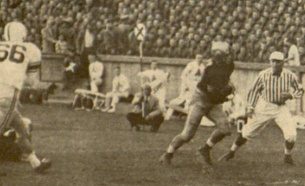 Lodge going down tosses to Paul Schweikert for score. Lodge going down tosses to Paul Schweikert for score.
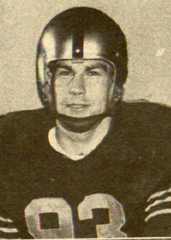 Unknown Unknown
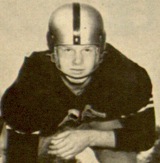 Bob FarrisPlayed the 2d half of the Navy Game blind in one eye. Bob FarrisPlayed the 2d half of the Navy Game blind in one eye.
 Pat Uebel Pat Uebel
 Tommy Bell Tommy Bell
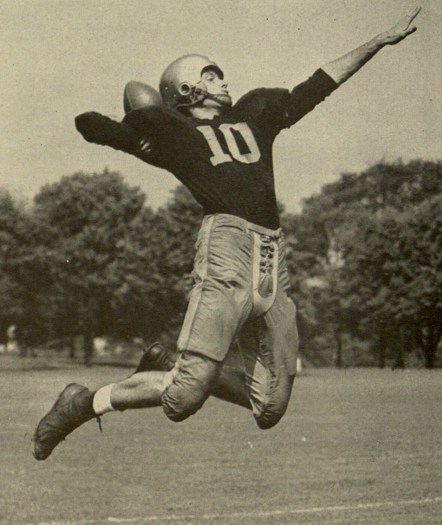 Peter Vann Peter Vann
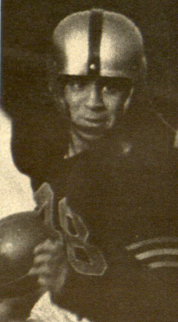 Freddie Attaya Freddie Attaya
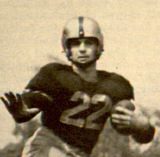 Mike Zeigler Mike Zeigler
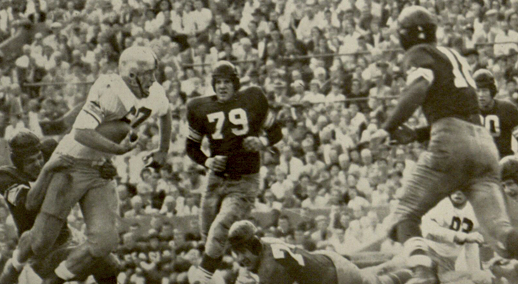 Jerry Lodge wearing #67, playing fullback. Jerry Lodge wearing #67, playing fullback.
 Wynn Wynn
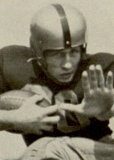 Lowell Sisson Lowell Sisson
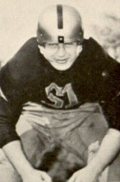 Norm Stephen Norm Stephen
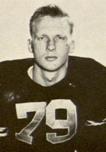 Jack Krause Jack Krause
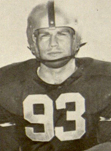 Dick Ziegler Dick Ziegler
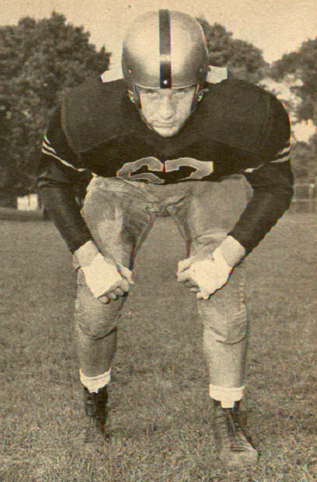 Jerry Lodge Jerry Lodge
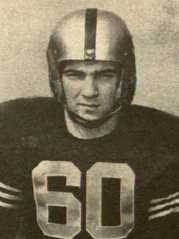 Leroy Lunn Leroy Lunn
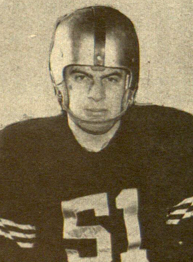 Norm Stephen Norm Stephen
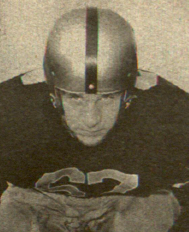 Jerry Lodge Jerry Lodge
 Corps of Cadets for Navy Game Corps of Cadets for Navy Game
 Can Do
Can Do
 General MacArthur stated it would take
General MacArthur stated it would take "at least 10 years" to return Army Football to Respectability
 General George Patton
General George Patton "The Army moves as a team, eats as a team, and fights as a team."
 Don Hollender Remember - The Soldiers you will lead Always Come First
 The '54 Crest
The '54 Crest
 The '55 Crest
The '55 Crest
 28th Infantry Regiment Black Lion Award is intended to go to the person on his team "who best exemplifies the character of Don Holleder: leadership, courage, devotion to duty, self-sacrifice, and - above all -
28th Infantry Regiment Black Lion Award is intended to go to the person on his team "who best exemplifies the character of Don Holleder: leadership, courage, devotion to duty, self-sacrifice, and - above all - an unselfish concern for the team ahead of himself."
 They played perhaps Army's Greatest Game. They played perhaps Army's Greatest Game.They were the Team that Gave The Most
 The '56 Crest
The '56 Crest
 The '57 Crest
The '57 Crest
|
Joseph P. Franklin
West Point Class of 1955, Army Football & Golf Teams, Commandant of Cadets 1979 - 1982.
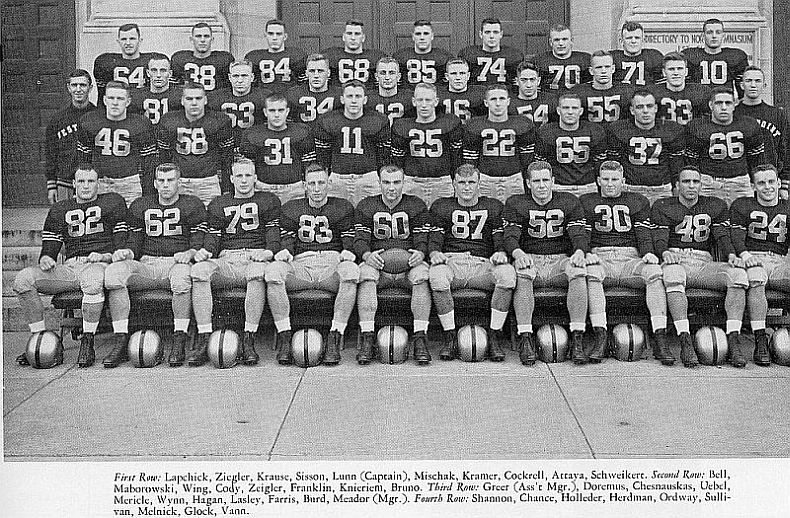
*Please note - Gerry Lodge - who wore (we think) both #67 and #32 is missing from Photo. 2d man 2d row next to Tommy Bell - Name is Zaborowski. Wynn #31 is actually in the 2d row not the 3d
The Cadets who played against Duke.
"Freddie Attaya" '54 - FB & Punter; Tommy Bell '55 - LHB; Ralph Chesnauskas '56 - RG (played the entire game - 60 minutes, kicked the 2 extra points); Cockrell - LHB; Bob Farris '56 - RT, "Howard Glock" '56 - LT, "Jerry Hagan" '55 - QB, Don Holleder '56 - RE; Krause - RT; Lapchick - LE; Lasley - C; "Gerry Lodge" '54 - FB, RHB; Def G & LB, "Leroy Lunn" - LG; Ordway- LE; Melnick - LT; Bob Mischak '54 - LE, Lowell Sisson '54 - RE, "Norm Stephen" '54 - C, Pat Uebel '56 - LHB, Peter Vann '56 - QB, "Mike Zeigler" '54 - RHB, "Dick Ziegler" '54 - LG, " Joe Franklin" '55 - RG (Tore up right knee when doubled teamed by Ralph Torrance & Eddie Meadows in 2d Quarter - Out for the Season)
In the 1953 Duke Game Joe tore up right knee when doubled teamed by Ralph Torrance & Duke's All American Eddie Meadows in 2d Quarter. He was out for the Season. He returned for the 54 season playing against Duke at Duke. He lettered in Football & Golf -- perhaps the only Army Guard to ever letter in Golf.
http://forwhattheygaveonsaturdayafternoon.com/wp-teams/football/1953-football
Col Blaik rotated the pulling guards (Vince Lombardi said he learned it with us), so Joe played both right and left guard along with Chester, "LeRoy Lunn", and "Dick Ziegler". In '54 "Flay Goodwin" and "Joe Bishop" took Lunn and Ziegler's place. Joe played all 60 minutes in the '54 Duke game, which Army won pretty handily at Duke. The Team flew down around Hurricane Hazel which devastated the North Carolina Coast, wiping out nearly all of Oak Island.
Joe was asked about Rotating Pulling Guards
"Pulling Guards were a staple of that period in Col. Blaik's era. "Vince Lombardi" was one of his most ardent disciples, having been one of the Seven Blocks of Granite at Fordham in the thirties. We all saw this later in the play of his offense at Green Bay. Curiously, Vince was the backfield coach, and was famous among the backs for his "slave-driving" training regimens. Every now and then, he would take over the linemen's drills if one of our coaches was detailed to scout elsewhere. We all thought Vince was a fun, easy-going guy because he couldn't resist jumping into our drills, smacking us around without pads and enjoying every second."
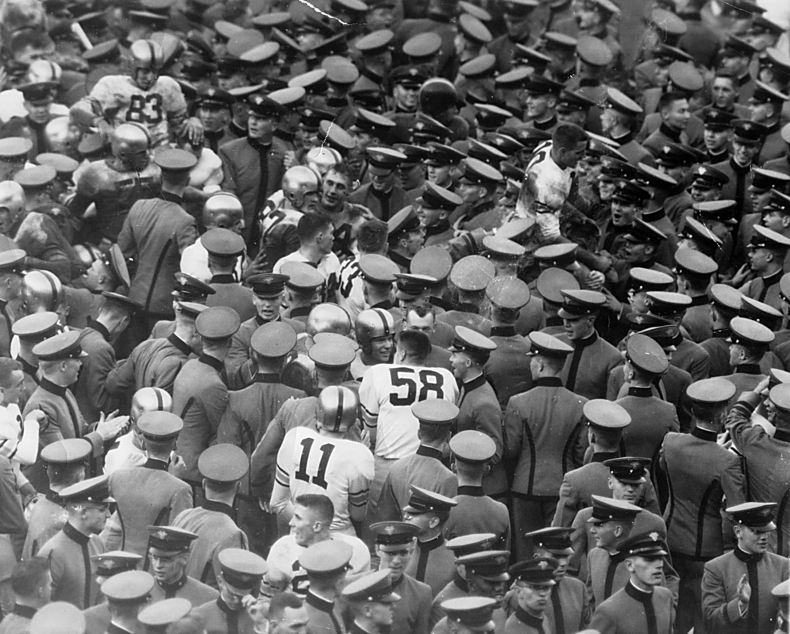 Deliriously happy Army players and cadets celebrate their stunning 14-13 upset of Duke University Blue Devils at the Polo Grounds in New York City's Polo Grounds, 17 October 1953. Identified players are Lowell Sisson (83), right end; Bob Mischak (87), left end; Bill Cody (11), quarterback; Ed Zaborowski (58), center; Joe Franklin (facing Ed Zaborowski; Frank Burd (33),fullback; Peter Vann (10), quarterback.
(Photo courtesy of Associated Press.)
Col Blaik was opposed to the limited substitution that the NCAA imposed during the early fifties: two subs per quarter, plus injuries, was it. He devised a system of "team substitution" by quarter, which meant 11 of us would rotate by quarter, each of us playing half the game. But this couldn't hold up because, obviously, we didn't have enough talent to field two competitive teams, rotating by quarters. I do recall Col Blaik saying that this was his way of telling the NCAA that their rules should allow as many men to play as possible. He believed (correctly, in my view) that the great benefit of the college game was to give as many of us as possible the chance to play at that level. Because the guards were pulling on almost every play, we were among the few who were substituted during a quarter. If one of us was hurt, we knew the assignments for both left and right guard, so there was rotation as well as substitution among the four of us who were listed on the depth charts as guards."
Reminiscences: Col Blaik was an avid golfer, as wasVince Lombardi. After Spring Practice, they were often out the 10-hole layout that was the WP Golf Course in the 50's. Carney Laslie, a wonderful southern gentleman who went on to coach at Alabama, was their third. I was on the golf team, so once in awhile they would pull me in as their fourth. Vince was an excellent golfer, but his deference to Col Blaik seemed to me to border sometimes on obsequious. A round of golf with that foursome included alot of Vince's "Good shot, Colonel" and "Great putt, Colonel." Col Blaik did not react to blandishments, but he made it very enjoyable to play golf with him. Doc Blanchard was also an assistant coach during those years, and playing golf with him was always alot of fun for us. He was not always accurate (understatement) but could hit it darn near over Storm King Mountain."
On Coaches and Hiring
Joe was asked about the hiring of Coaches
"Paul Dietzel(1963-1965) invited me to be an assistant coach when I arrived at West Point in 1965 to teach nuclear engineering. I expected he would accomplish great things; he was an Assistant Coach under Col Blaik when I was playing and all of us thought very highly of him. He quit after I had been there one year, the 1965 season. (Very odd circumstances, never really understood why.) Tom Cahill took over, (again, some interesting sidelights in that selection) had a good couple of years with Dietzel's recruits, followed by what Cahill predicted would be tough times. (Tom was a fine human being and became a good friend; there is alot more to his story.)
As fate would have it, I was picked to be the Comm in 1979 (by Andrew J. Goodpastuer - Superintendent) right after the late '70's cheating scandal; I was a plebe when the '51 scandal hit. When "Homer Smith" left in 1978 we hired Saban, who also quit after 1 year, and Cavanaugh took over; much the same as Cahill did after Dietzel. In the latter two cases, the hiring process was truncated for reasons best to be discussed another day." (Editor's Note -some of the above is discussed in detail in the "Building Leaders The American Way" by Joseph P. Franklin - All Proceeds go to West Point)
Joe was asked if he could say more about his experience with West Point's football coaches and provided the following:
Here's some expanded notes on my earlier description of coaches who were at West Point when I was teaching nuclear engineering and coaching football (1965-68), and later when I was Commandant (1979-1982). This responds to your request for "history," but as the sands of time are running away from us now, please understand that if my recollection of dates, etc., are off a year or two here and there, it's not intentional
As you know, I lettered in football and golf and graduated in 1955. During the next ten years I trained at Forts Belvoir and Benning, served three years with troops in Germany, earned masters' degrees at MIT in Civil Engineering and Nuclear Engineering, managed the design and construction of the Army's first (and only) floating nuclear power plant, spent a year shutting down and disassembling a nuclear reactor at Camp Century on the Greenland ice cap, and finally was assigned to USMA to teach Nuclear Engineering in the Department of Military Art and Engineering (MA&E) in June, 1965 with the rank of Major, Corps of Engineers.
Paul Dietzel was Army's head coach, and I had played for him in '53-'54 when he was one of Coach Blaik's top assistants. I recall that all of us on those teams thought Paul would be a great head coach if Col. Blaik ever retired. Paul contacted me as soon as I got back to USMA to invite me to be an assistant coach. He put me with the Plebe Team, so I was coaching under Tom Cahill. Our plebe team was undefeated that year, with some of the top talent that Army had recruited in several years: Gary Steele, Steve Lindell, Charlie Jarvis, and many other great athletes who were also great young men. All of us were very optimistic for Paul, expecting him to accomplish great things as he had at LSU before he returned to Army. But he walked away after that season. To this day I don't know why he quit; I'll simply have to say it was above my pay grade at the time.
The Academy leadership was caught off guard, and thus was late in starting a search for a new coach. By the time spring practice rolled around we were still without a head coach, so of necessity the plebe staff ran spring practice with Tom Cahill in charge. Bobby Dobbs, who was then head coach at either TCU or Texas Tech (as I recall), was one candidate who came to visit. He had also been an assistant when I was playing and had encouraged and helped me to make a come-back after I was injured in '53. But the search process was just not efficient enough, so by the time he (and several others) were contacted, it was too late; all of the potential top candidates had already been signed for the next season.
The locker room for the coaches was on the second floor across from the entrance to the old central gym (where the annual obstacle course was run.) My locker was next to Tom Cahill's, and after every practice Tom would sit on the bench in front of his locker and smoke a cigarette.
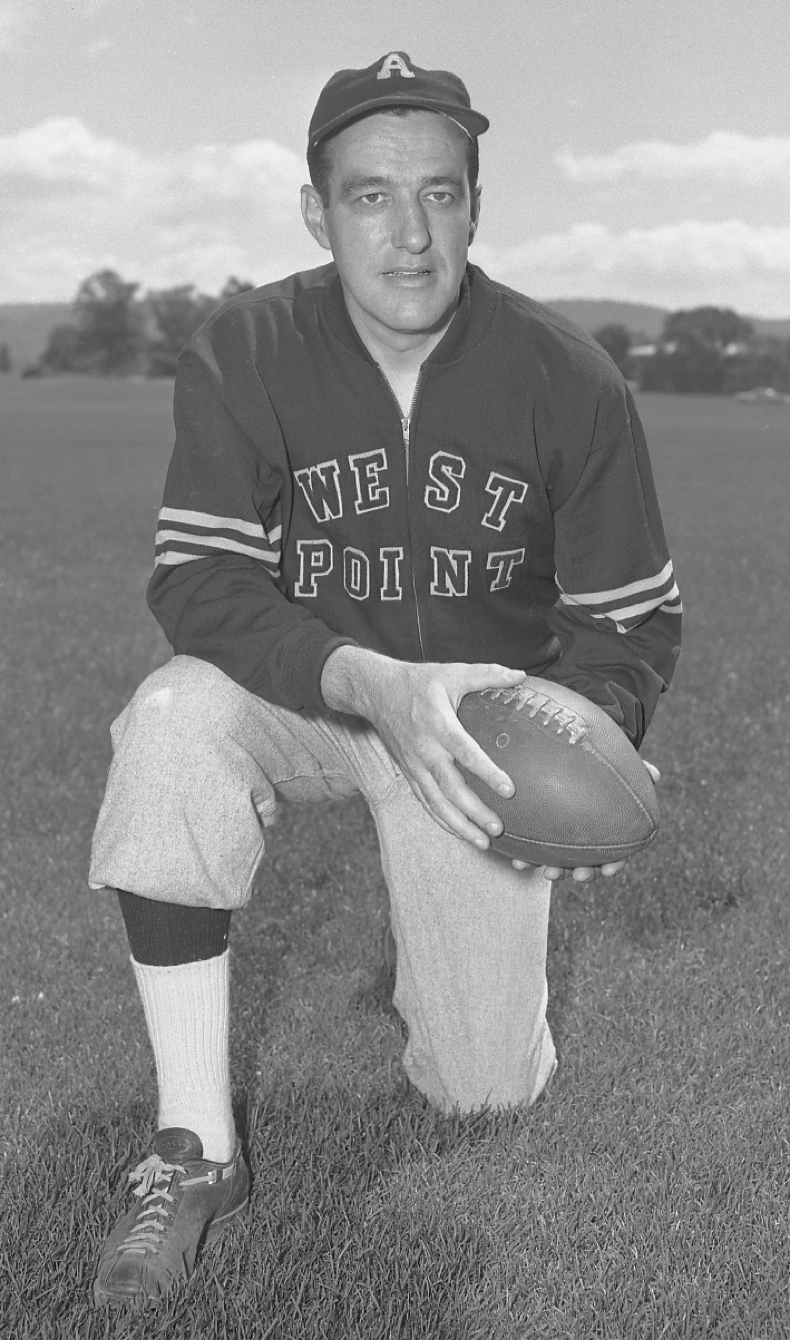
Coach Tom Cahill - Elevated from Plebe Coach in 1966 - guides Army to an 8-2 Record (previous 2 years were losing seasons) earning "National Coach of the Year" honors. Coach Cahill is replaced in 1974 after 5 wining seasons and 3 losing seasons.
As the coaching search dragged on, he said to me one day after practice: "You know, Joe, they're going to ask me to be the head coach and I'll have to take the job, and I know I'll get fired. All I really want to do is coach the plebes, stay here to watch Tad graduate, and retire around here with Bonnie." (Bonnie was Tom's wife and Tad was his son, who later played wide receiver for Army.) After he was named head coach, Cahill, by enormous strokes of good luck, was able to find and hire several outstanding assistant coaches, including Bobby Ward, Bill Meek, and several other very talented and experienced men to fill out his staff. In sum, Tom Cahill initially had a coaching staff that was top quality and very adept at using the talent Army could field.
The net result was that Army had a great season and Tom Cahill was named Coach of the Year after his first season as head coach. Success came from a combination of the fine coaching staff he had hired and the talented recruits he had helped bring in under Dietzel. But as Cahill himself had predicted, he was not able to sustain this success, and he and Bonnie eventually had to leave West Point after a disastrous losing season in 1973. I also have to believe that the trauma of failing and departing his beloved West Point was one of the factors that contributed to Tom Cahill's early death.
Tom Cahill was a fine human being who knew who he was and had not one pretentious bone in his body. What follows is just one example of the quality of this good man. We had an outstanding player on the '65 plebe team who would clearly have been a great talent when he moved up to varsity. (Freshmen could not play on the varsity in those years.) But soon after the spring practice that preceded his first year as head coach, Tom told me he had ordered that young man to resign from West Point for personal reasons. (Details omitted.) To me, that spoke volumes about the integrity of Tom Cahill. And so it was, to me, a really tragic loss for all of us when a few years later Tom Cahill resigned after what he himself had predicted would be an unsuccessful time as head coach.
Years later and alot of water under the bridge, General Andrew Goodpaster selected me to be the Commandant in the aftermath of the ''77 cheating scandal. (It was perhaps coincidental, perhaps not, that I had been a plebe when the '51 scandal hit; I wrote about this in my book, "Building Leaders the West Point Way.".) And just as it was in 1965 after I joined the coaching staff, Army was again searching for a new head coach. Very suddenly, "Lou Saban", who had gained fame as a winning coach in the pro ranks, was hired. It turned out that MG (Ret.) Ray Murphy (USA, Ret.) who was Director of Intercollegiate Athletics, had met Saban by happenstance on a commercial airline flight. Gen. Murphy told me he offered Saban the job right then and he took it. "Lou Saban" knew football and how to use the talent of his teams to win, but he quit after one season ('79) and left us again looking for a new a head coach. I was directly involved in and supported the decision to hire Saban's assistant, "Eddie Cavanaugh", because he had recruited many of the players and was well-liked by all. His relationship with the team was a very strong factor in his favor. So Cavanaugh took over, but in the cold clarity of hindsight, he was not, in the final analysis, the right man for the job. If there is blame to be shared for his selection, I certainly accept it.
Army did not have any great winning seasons during my three years as Comm ('79-'82.). I regret that, of course, but not everyone who sits in the leadership at the Academy will enjoy the benefits of winning football seasons. It could certainly be argued that I had my share when I was actually playing, and later coaching, on the fields of friendly strife.
Last thought: To represent West Point on our football team was an experience to be treasured for a lifetime. Then to carry a great part of the responsibility for educating, training, and inspiring the Corps of Cadets was a privilege far beyond any I could ever have asked for.
God bless our soldiers and Go Army!
With warm regards, Joe Franklin
Commandant of the United States Corps of Cadets 1979 - 1982
Joseph P. Franklin's selection as a 2007 West Point Distinguished Graduate
Throughout his life of service as a distinguished Army officer, scholar, diplomat, business leader, and Vice Chairman of the Board of Trustees of the West Point Association of Graduates, Joseph P. Franklin has continuously and conspicuously dedicated himself to the principles of Duty, Honor, Country.
After graduating from West Point in June 1955, General Franklin was commissioned in the Corps of Engineers and completed the Engineer Officer Basic Course, Airborne School, and Ranger School. He then reported to the 78th Combat Engineer Battalion in Germany, where he served as a platoon leader and a company commander until 1959. In 1959, he was selected to attend MIT, where he earned Master's Degrees in both Civil and Nuclear Engineering.
Following graduate school, General Franklin was assigned to the Army's Nuclear Power Field Office as part of the Army Nuclear Power Program. In this assignment, his initial role was project manager for the design of the world's first floating nuclear power plant. His second task was to lead a team of specialists to dismantle a portable nuclear power plant located on the Greenland icecap, and to salvage and return its highly radioactive components to the United States. General Franklin accomplished both of these unique and incredibly complex missions to perfection.
Following completion of the Engineer Officer's Advanced Course, General Franklin was assigned as an instructor in the Department of Military Art and Engineering at the Military Academy. He took charge of the Nuclear Engineering course, and wrote a new full year curriculum in nuclear engineering for First Class Cadets. His accomplishment with this course remained essentially unchanged for 40 years, until 2005, when it was expanded to become a Major Course of Study.
After his assignment at West Point, General Franklin completed a year of study at the School of Naval Command and Staff at the Naval War College. In 1969, he was selected to command the 299th Combat Engineer Battalion, conducting combat operations in Vietnam and Cambodia. For his superb leadership of this battalion in combat, he was awarded the Legion of Merit and the Bronze Star Medal.
General Franklin's follow-on assignment from Vietnam was to the Office of Plans and Policy, the J-5 of the Joint Staff. There he used his nuclear training and field experience to write the study that was the basis for recasting the United States' nuclear weapons arsenal under the Strategic Arms Limitation Talks (SALT). While in that assignment, General Franklin was selected for attendance at the Army War College in 1972. Shortly before his graduation, he was reassigned to be the Army Staff Group Executive for the Chairman of the Joint Chiefs of Staff. For his outstanding performance in this important position, he was recognized with a second Legion of Merit and the Joint Service Commendation Medal.
In 1979, Joe Franklin became one of the first members of the Class of 1955 to be promoted to Brigadier General, and soon afterwards was selected to be the Commandant of Cadets at West Point. It was a turbulent period in the Military Academy's history. A serious cheating scandal had brought intense scrutiny to the institution, and West Point was also preparing to graduate its first class with female cadets. With recommendations from a Blue-Ribbon panel, General Franklin worked with the Cadet Chairman of the Honor Committee to develop the initiatives that shaped new policies strengthening the Honor Code and Honor System. Another of his highly successful innovations was persuading the Army's personnel center to assign one senior non-commissioned officer as the "Tac NCO" for each cadet battalion.
Following a tour of duty as Assistant Division Commander of the 25th Infantry Division in Hawaii in 1982-83, General Franklin's special talents earned him another call from the Joint Chiefs of Staff to take an important assignment as Chief of the Joint US Military Assistance and Advisory Group in Spain.
Spain was poised to become a member of the European Economic Community when he arrived. This new democracy had just entered NATO, and many critical diplomatic and military issues had to be addressed and resolved. Using his great interpersonal skills, General Franklin was instrumental in ensuring that Spain would become an important partner for peace. When his tour of duty ended, he was awarded Spain's highest decoration for military service and the US Army Distinguished Service Medal.
Following his retirement from active duty in 1987, Joe Franklin entered the world of business in the private sector. Initially remaining in Spain, he began his service in the corporate world by forming a Spanish corporation, Franklin Sociedad Anonima, which consulted for US corporations seeking business in Spain, as well as for Spanish companies seeking business in the United States. In 1992, he was recruited to lead Frequency Electronics, Inc., located in New York. Serving as Chairman and CEO, he led FEI through a complex series of legal and administrative transactions that positioned the company to become a highly profitable and valuable contributor to the US defense, space, and telecommunications industries. He stepped down as CEO in 1999, but remains Chairman of the Board.
Building from the broad array of personal and professional skills he had honed through both his military service and his private business career, Joe Franklin made a conscious decision: he would turn his attention, and his impressive talents, to giving back to West Point. He began his contributions to the Association of Graduates in 1993 with service on the Alumni Support Committee. He was subsequently elevated to the Board of Trustees, appointed Chairman of the Alumni Support Committee, and was finally elected Vice Chairman of the AOG, where he served for four years. In this capacity, he was a driving force behind the Bicentennial Campaign for the Military Academy, helping structure, guide and lead the AOG development team that made the Bicentennial Campaign an unprecedented success: exceeding its $150 million goal by $75 million. He was also instrumental in orchestrating the many changes necessary to bring governance of the AOG into the 21st century and into compliance with the new statutes associated with not-for-profit organizations.
Thoughtful, forthright and modest, Joe Franklin is the epitome of a professional. He has repeatedly proven his dedication to the ideals of West Point in the 52 years since his graduation. As a Soldier, businessman, and leader of the Association of Graduates, he has made all graduates proud to call him a West Pointer. In short, Joe has been, is, and will continue to be a leader's leader.
Accordingly, the Association of Graduates takes great pride in presenting the 2007 Distinguished Graduate Award to Joseph P. Franklin.
|
|


 General MacArthur stated it would take
General MacArthur stated it would take  28th Infantry Regiment
28th Infantry Regiment 
 They played perhaps Army's Greatest Game.
They played perhaps Army's Greatest Game.


























































 General MacArthur stated it would take
General MacArthur stated it would take 


 28th Infantry Regiment
28th Infantry Regiment  They played perhaps Army's Greatest Game.
They played perhaps Army's Greatest Game.



































 Cadet Barracks
Cadet Barracks























